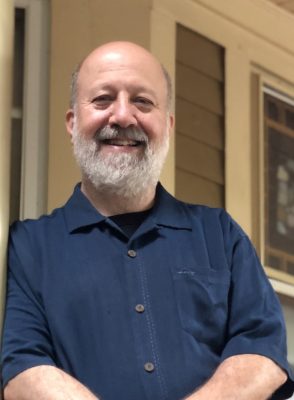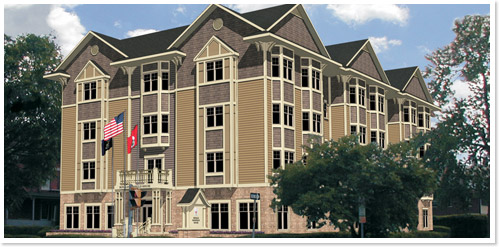Building a Fossil Fuel Free Future
Expert: Electrification Is the Key to a Sustainable Future for Buildings
If you’ve been on the market for a new home, properties with a natural gas-powered stove were probably promoted as especially valuable. How Americans heat and cook in their homes is facing a major potential energy shift as more states explore natural gas and other fossil fuel bans.

Ian M. Shapiro, an award-winning engineer and author, is the new associate director of Building Science and Community Programs with SyracuseCoE. He will serve as the leader for the new SyracuseCoE Building Assessment Center, and will also begin teaching in the fall semester as professor of practice at the College of Engineering and Computer Science in its Department of Mechanical and Aerospace Engineering.
Shapiro, who is a leading expert on building electrification, recently spoke with Urban Green Live about the building industry’s readiness to electrify.
He answers six questions below about the future of fossil-fuel-free buildings, and is available for interview.
Q: For years, the gas-powered stove was often featured as an attractive selling point for homeowners. Break it down for us – is my gas-powered cooktop, oven or furnace making my home unhealthy?
A: Yes, in several different ways. Many people die each year from carbon monoxide poisoning, and many more are hospitalized, per the CDC. This is not hypothetical, I have served as an expert witness for a family that was hospitalized with extreme symptoms of illness, due to a malfunctioning gas furnace. Many of us will remember the tennis champion Vitas Gerulaitis who was killed by carbon monoxide poisoning. There are other risks, including gas explosions, fires, and more, contributing to many more deaths, per the National Fire Protection Association (NFPA). A variety of other pollutants also come from the combustion of fossil fuels, including particulates, oxides of nitrogen, and more, contributing to variety of other health problems. There are also burn safety risks, especially for children, seniors, and the disabled.
Q: New York state has become the first state to ban natural gas stoves and furnaces in new buildings starting in 2026. What is your take on this development?
A: This is a great development and shows New York to be a leader in the fight for safety, protecting people from unnecessary fire/explosion/carbon-monoxide/burn accidents and deaths, and eliminating the carbon emissions that place our planet at such great risk.
Q: Can you talk about the larger environmental impact of gas-powered appliances, especially in residential buildings?
A: The carbon emissions from these fossil fuels are a leading cause of climate change, and the existential risk it poses to all of us.
Q: What are some of the best alternatives to gas powered stoves and furnaces?
A: Chefs are increasingly being won over by high-efficiency electric induction cookstoves, according to the NY Times. These cook extremely quickly and are very safe (cool to the touch). Standard electric stoves are another well-proven option. If a homeowner wants to keep the option of gas-cooked food, and does not care about the environment, gas grills are always an option.
Q: If I already have this sort of appliance in my home, are there steps I can take to improve the indoor air quality?
A: An exhaust fan or hood above a stove will reduce indoor pollutants but will not eliminate risk from explosion or fires.
Q: As a building scientist, what are you paying most attention to or think is not being discussed enough in the conversation about gas-powered items in our homes?
A: The risk of accidents (fires, burns, explosions, carbon monoxide poisoning, and other fatal risks), quite aside from the existential risk to the planet. These risks of accidents are getting very little coverage. The focus of the debate has mistakenly been cooking convenience versus the environment. There is much more to the issue than just that. And we need to be talking about how to get these fossil fuels out of existing buildings, not just not having them in new buildings. Separately, the role of the fossil fuel industry in the debate is not getting enough coverage. Most of the debate on the “keep gas” side is being financed by the fossil fuel industry. We have seen ads on the little TVs at gas stations, we have seen full page ads even in local papers, and I believe virtually all of these are traceable to the fossil fuel industry.
To request interviews or get more information:
Daryl Lovell
Associate Director of Media Relations
Division of Communications
M 315.380.0206
dalovell@syr.edu | @DarylLovell
Syracuse University


